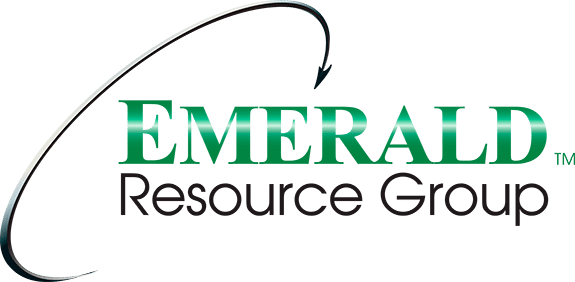In the realm of accounting, where numbers reign supreme and financial data holds immense power, the ethical compass guiding professionals is of paramount importance. As stewards of financial integrity, accountants are entrusted with the responsibility of upholding ethical standards and maintaining trust in the profession. In this comprehensive guide, we delve into the intricate world of ethical dilemmas in accounting, exploring the gray areas with integrity and analytical precision.
The Moral Compass: Understanding Ethical Dilemmas in Accounting
Ethical dilemmas are the moral crossroads where conflicting values and interests intersect, posing complex challenges for accountants. From conflicts of interest and client confidentiality to honesty in financial reporting, navigating these ethical minefields requires a keen understanding of ethical principles and a steadfast commitment to integrity.
Pillars of Trust: The Importance of Integrity in Financial Reporting
At the heart of ethical conduct in accounting lies integrity—the unwavering commitment to honesty, transparency, and accuracy in financial reporting. Upholding integrity not only preserves trust and credibility in financial markets but also safeguards the interests of stakeholders and ensures the integrity of the profession as a whole.
Gray Areas and Red Flags: Common Ethical Issues Faced by Accountants
Ethical issues in accounting often arise in the gray areas where competing interests and ethical principles collide. Conflicts of interest, client confidentiality breaches, and pressures to manipulate financial data are among the common ethical dilemmas faced by accountants, underscoring the importance of ethical awareness and vigilance in professional practice.
Walking the Tightrope: Managing Conflicts of Interest with Integrity
Conflicts of interest represent one of the most prevalent ethical challenges in accounting, as accountants navigate the delicate balance between personal interests and professional responsibilities. Whether it’s maintaining independence in auditing or avoiding undue influence from clients, managing conflicts of interest requires a steadfast commitment to ethical principles and a dedication to putting the interests of stakeholders first.
Behind Closed Doors: Upholding Client Confidentiality in Accounting Practice
Client confidentiality is sacrosanct in accounting practice, as accountants are entrusted with sensitive financial information that must be kept confidential. However, maintaining client confidentiality can sometimes conflict with other ethical obligations, such as the duty to report unethical behavior. Striking the right balance between confidentiality and transparency requires careful consideration and adherence to ethical principles.
The Auditors’ Creed: Maintaining Independence and Objectivity
Independence and objectivity are the cornerstones of auditing, as auditors are tasked with providing impartial and unbiased assessments of financial information. Yet, maintaining independence can be challenging in the face of client pressures or conflicts of interest. By adhering to professional standards and codes of conduct, auditors uphold the integrity of the auditing profession and ensure the reliability of financial reporting.
Truth or Consequences: The Ethical Imperative of Honest Financial Reporting
Honesty in financial reporting is non-negotiable in accounting practice, as the integrity of financial information forms the bedrock of trust in financial markets. Yet, the temptation to manipulate or conceal financial data can be strong, especially in high-stakes situations. Accountants must resist this temptation and uphold their ethical duty to provide accurate and transparent financial information, even when faced with pressure to do otherwise.
Speaking Up: The Ethics of Whistleblowing in Accounting
Whistleblowing represents a critical mechanism for uncovering and addressing unethical behavior in accounting practice. However, whistleblowers often face significant risks and repercussions for speaking out against wrongdoing. Ethical considerations, such as the duty to report unethical behavior and the potential consequences for whistleblowers, must be carefully weighed in determining whether to blow the whistle.
Guiding Lights: Professional Standards and Codes of Conduct in Accounting
Professional standards and codes of conduct serve as guiding lights for accountants navigating ethical dilemmas, providing a framework for ethical decision-making and behavior. By adhering to these standards and codes, accountants uphold the integrity of the profession and ensure consistency and transparency in accounting practice.
Navigating the Maze: Ethical Decision-Making Frameworks for Accountants
Ethical decision-making frameworks offer accountants structured approaches for analyzing and resolving ethical dilemmas. Whether employing a principles-based approach or a consequences-based approach, accountants can use these frameworks to evaluate ethical issues systematically and make sound decisions that uphold integrity and professionalism.
Case Studies in Ethics: Learning from Real-Life Dilemmas
Real-life case studies offer valuable insights into the complexities of ethical dilemmas in accounting, allowing accountants to apply ethical principles in practical scenarios. By analyzing these case studies and considering the ethical implications of various courses of action, accountants can hone their ethical decision-making skills and strengthen their ethical awareness.
Tools of the Trade: Ethics Training and Education for Accountants
Ethics training and education play a crucial role in fostering ethical awareness and professionalism among accountants. By providing comprehensive ethics training and ongoing education, accounting firms and professional organizations equip accountants with the knowledge, skills, and ethical mindset needed to navigate ethical dilemmas with integrity and confidence.
Culture of Integrity: The Role of Organizational Values in Ethical Behavior
Organizational culture plays a pivotal role in shaping ethical behavior within accounting firms and corporations. By fostering a culture of integrity, transparency, and accountability, organizations create an environment where ethical conduct is valued and promoted, empowering accountants to uphold the highest ethical standards in their professional practice.
Leading by Example: The Importance of Ethical Leadership in Accounting Firms
Ethical leadership sets the tone for ethical behavior within accounting firms and organizations, shaping the ethical climate and culture of the workplace. By demonstrating a commitment to integrity, ethical leaders inspire trust and confidence among employees, fostering a culture of ethical conduct and professionalism.
Charting a Course: Upholding Integrity and Ethics in Accounting Practice
In conclusion, navigating ethical dilemmas in accounting requires a steadfast commitment to integrity, professionalism, and ethical conduct. By upholding the highest ethical standards, accountants not only preserve trust and credibility in the profession but also ensure the integrity of financial reporting and the welfare of stakeholders. Through ethical awareness, education, and leadership, accountants can navigate the complex terrain of ethical dilemmas with integrity and confidence, upholding the values that define the accounting profession.
Are you interested in exploring other career opportunities? Contact us today!

